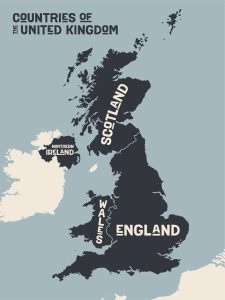Origin of new Measures
On 2 February 2024, the UK Department for Environment Food & Rural Affairs (DEFRA) announced the opening of a public consultation on a proposed regulation, known as The Marking of Retail Goods Regulations 2024. This initiative is part of the implementation of the Windsor Framework, an agreement governing the trading relationship between the United Kingdom and the European Union after Brexit.
The new labelling involves the affixing of labels with the words “Not for EU” on the packaging of some agri-food products, with the aim of preventing them from arriving in EU countries, such as the Republic of Ireland, from Northern Ireland.
In agreement with the United Kingdom, the EU has made the “Not for EU” label a legal requirement under “Regulation (EU) 2023/1231 of the European Parliament and of the Council of 14 June 2023 on specific rules relating to the entry into Northern Ireland from other parts of the United Kingdom of certain consignments of retail goods, plants for planting, seed potatoes, machinery and certain vehicles operated for agricultural or forestry purposes, as well as non-commercial movements of certain pet animals into Northern Ireland”.
 Who is involved
Who is involved
The new measures will affect manufacturers, distributors and retailers of certain pre-packaged retail products in UK, with a particular focus on goods crossing the border between Northern Ireland and Great Britain.
Details on the New “Not for EU” Labels
Entry into force
The new labelling requirements are introduced in 3 phases from October 2023 to July 2025.
- Phase 1: From 1 October 2023 all meat and some dairy products moving from Great Britain to Northern Ireland will need to be labelled.
In this phase, only products moving into Northern Ireland under the Northern Ireland Retail Movement Scheme will need to meet the labelling requirements. - Phase 2: From 1 October 2024, in addition to the Phase 1 products, all milk and dairy products moving to Northern Ireland under the Northern Ireland Retail Movement Scheme will need to be individually labelled.
In this phase, all meat and dairy products in Great Britain (England, Scotland and Wales) will also have to be individually labelled. - Phase 3: From 1 July 2025, composite products, fruit, vegetables and fish moving to Northern Ireland under the Northern Ireland Retail Movement Scheme will also need to be individually labelled.
The same products in Great Britain (England, Scotland and Wales) should also be individually labelled.
Exceptions
An important exception is for qualifying goods from Northern Ireland, which will be exempt from the labelling requirement if in free circulation before moving to Great Britain. Furthermore, the regulation provides for a transitional phase for some products already placed on the market.
Implications for Producers and Consumers
For Producers
Manufacturers will need to adapt to these new regulations, potentially facing logistical and financial challenges to ensure all products meet labelling requirements on time.
For Consumers
Consumers will benefit from greater transparency regarding the origin of the products they purchase, allowing them to make more informed choices based on labeling information.
Industry Reactions and Answers
Support and Criticism
While some stakeholders welcome the introduction of clearer rules, others express concerns about potential burdens on small businesses and additional complexity in supply chains.
From a consumer perspective, moreover, this labelling system, which already entered into force in Northern Ireland in 2023, generated confusion as buyers wonder whether the food products on which the “Not for EU” labels are affixed are of lower quality or do not comply with EU regulations, although they simply indicate that the products are intended to remain in the UK market and do not refer to products that do not meet EU standards.
Consultation Process
DEFRA invited producers, distributors, retailers and consumers to participate in the public consultation, providing an opportunity to influence the decision-making process and ensure that the final regulation is balanced and achievable.
Conclusions
This action of the United Kingdom reflects the continuing evolution of its post-brexit regulatory framework, underlining the importance of clearly defining trade rules and labelling in a context of changing relations with the EU. The new “Not for EU” labelling regulation is a significant step in this direction, with profound implications for producers, distributors and consumers.




